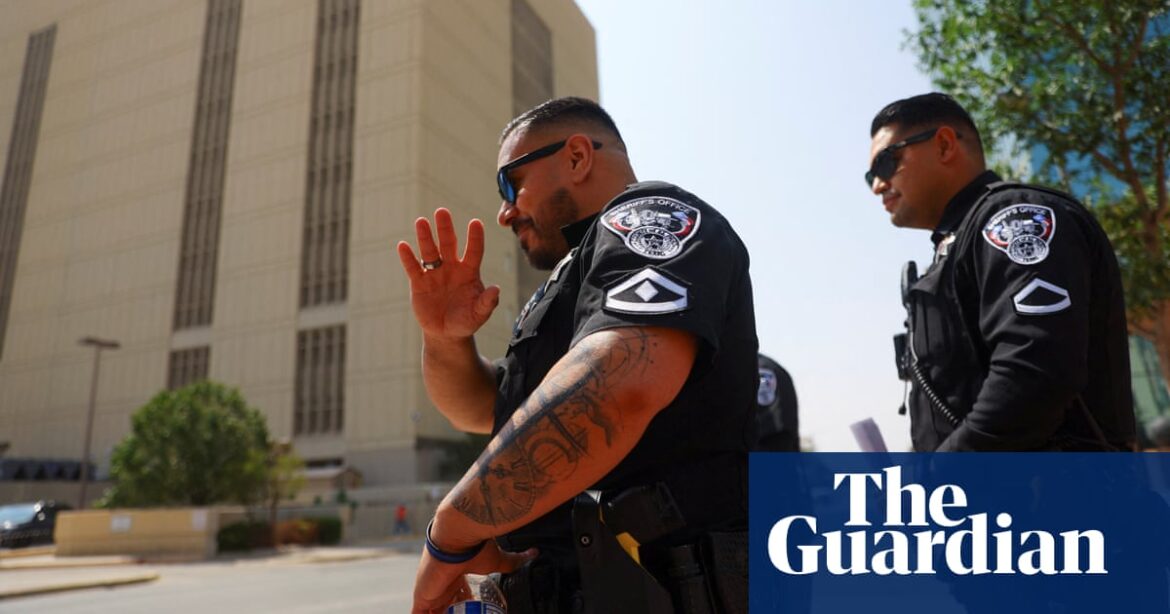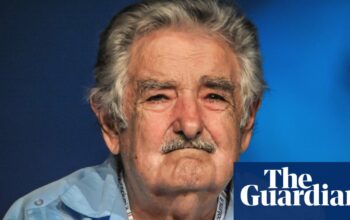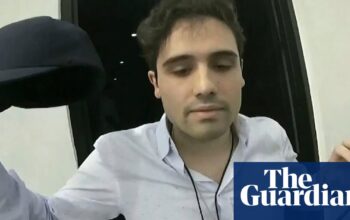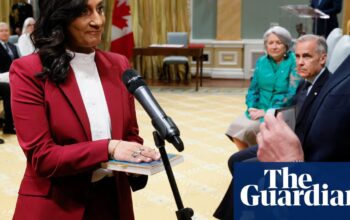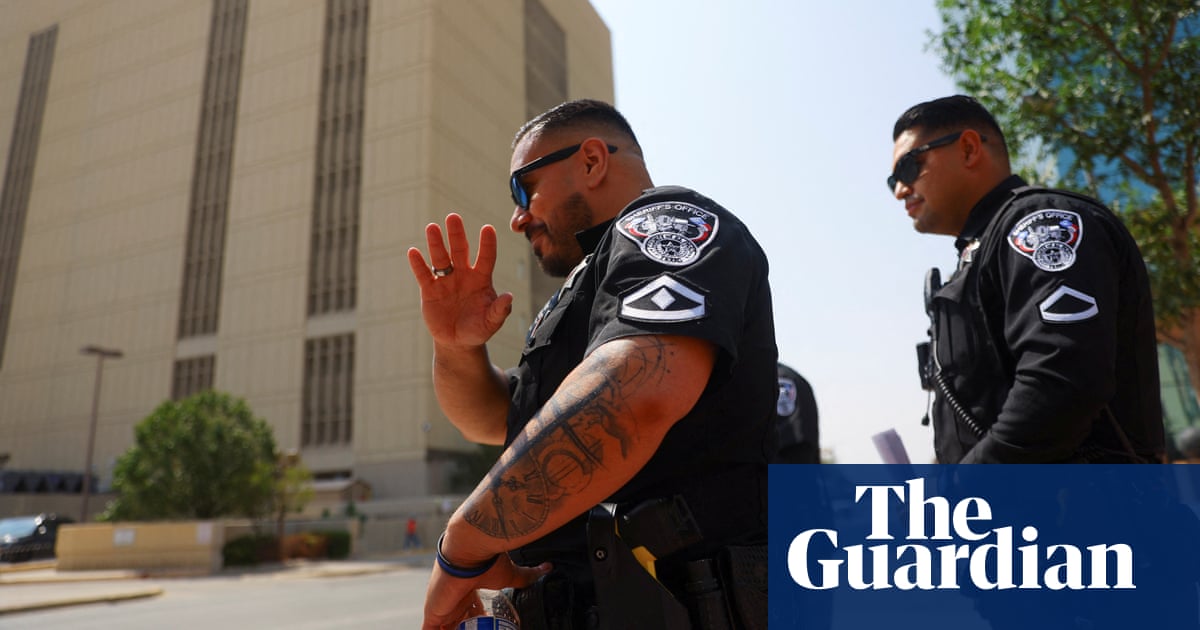
The Mexican president, Andrés Manuel López Obrador, has called for “transparency” after the sudden and secretive arrests by US authorities of two top leaders of the Sinaloa cartel, one of Mexico’s most powerful organised crime groups.
Ismael “El Mayo” Zambada García, 76, founded the Sinaloa cartel with Joaquín “El Chapo” Guzmán Loera, and has been a top target of US law enforcement for decades, with a $15m bounty on his head.
El Mayo was taken into custody in El Paso, Texas, along with Joaquín Guzmán López, a son of El Chapo, who is already serving a life sentence in the US.
Mexican authorities admitted this morning they had been in the dark about an operation that US officials framed as a major blow to fentanyl trafficking.
There are various versions of what took place on Thursday, none of which has been officially confirmed.
Some say that both El Mayo and Guzmán orchestrated their own arrests; others that both were deceived into flying to the US, where they were arrested; and others that Guzmán made a deal with US authorities and betrayed El Mayo.
This morning El Mayo’s lawyer said he was arrested “against his will” and had pleaded not guilty to all charges in El Paso’s federal court.
The nature of the arrests will shape the fallout in Mexico, where the suggestion of a betrayal within the Sinaloa cartel could be explosive.
Though the organised crime group is often presented as vertical and unified, it is really a constellation of factions, networks and cells that may at times cooperate but at others are in conflict with one another.
Since the arrest of the elder Guzmán, the faction led by the sons of El Chapo, known as the Chapitos, has been fighting with that led by El Mayo.
“If the narrative [of betrayal] gains traction, there will be bad blood in the organisation,” said Falko Ernst, Mexico analyst for the non-profit Crisis Group. “There’s been quite a lot of violence between factions, and that might heat up as this story unfolds.”
But even without betrayal, the arrests could still destabilise the criminal world in Mexico.
In the past, the removal of leaders has caused criminal groups to splinter, provoking violent conflict between the offshoots as they compete to control territory and income streams.
Though the Sinaloa cartel and the Cártel Jalisco Nueva Generación (CJNG) are seen as the only two organised crime groups with national presence, by some counts there are now hundreds of groups operating in Mexico.
Despite reports that El Mayo had taken a backseat on account of his age and poor health, his removal from the scene could trigger another spate of conflict.
“El Mayo was the figurehead of the organisation. I don’t think his significance should be underestimated,” said Ernst. “But like any CEO of a large conglomerate, he has his lieutenants in place that know how to run the business, and how to run the paramilitary machine as well.
“The structure won’t just go away,” added Ernst. “It’s a question of how it changes without his figure lending cohesiveness.”
Rival criminal groups – not least the CJNG, which is locked in violent struggles with the Sinaloa cartel across Mexico – may also see it as a sign of weakness, and an opportunity.
North of the border, the arrests are a symbolic victory. “El Mayo has been in the crosshairs of the US government for decades, and has never seen the inside of a prison cell,” said Parker Asmann of InSight Crime.
But experts are sceptical they will dent the trafficking of fentanyl, the synthetic opioid that has fuelled a crisis of roughly 70,000 overdose deaths a year in the US.
“The fragmented nature of the synthetic drug supply chain has made it a far more decentralised operation with a relatively low barrier to entry,” said Asmann. “This has reduced the importance of single players like El Mayo, or single criminal organisations like the Sinaloa cartel.”
“This is a market that cannot be killed by taking a couple of kingpins out the picture,” said Ernst. “The profit margins, the income this provides for criminal actors and their allies, are too lush to just wither.”
The diplomatic implications of the unilateral operation – and the information that El Mayo and Guzmán may have bartered in exchange for deals – remain to be seen.
“Mayo could tell you everything about state-crime ties over the past decades,” said Ernst. “But I don’t think it’s in the interest of the US to let this sour things with Mexico as they approach a delicate point in the renegotiation of the bilateral relationship – not just in terms of security, but trade, energy, migration and so forth.”
Source: theguardian.com
